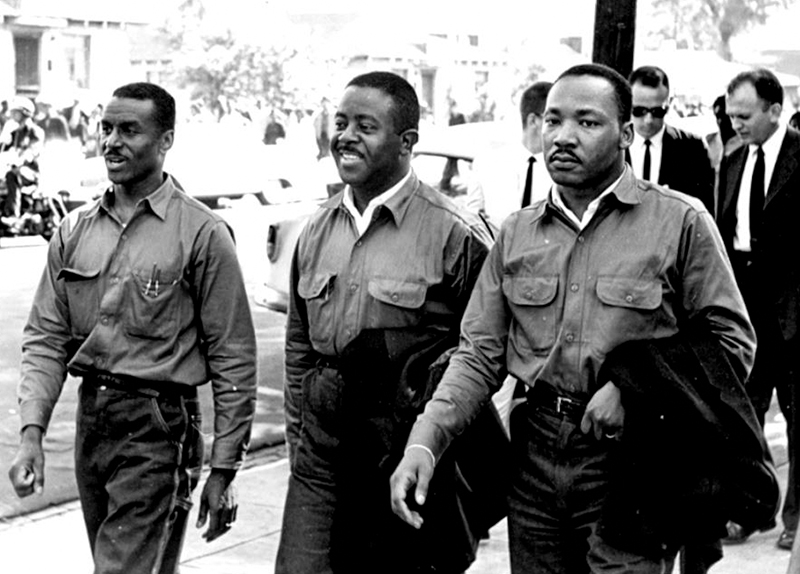Authors:
Historic Era: Era 9: Postwar United States (1945 to early 1970s)
Historic Theme:
Subject:
Winter 2010 | Volume 59, Issue 4


Authors:
Historic Era: Era 9: Postwar United States (1945 to early 1970s)
Historic Theme:
Subject:
Winter 2010 | Volume 59, Issue 4

On April 12, 1963 in Birmingham, Alabama, Martin Luther King Jr., faced the prospect of failure in his most significant civil rights campaign. For all his generally acknowledged leadership in the escalating southern black protest movement, King had actually never initiated a major demonstration.
Depicted in the press as America’s Gandhi, he had disappointed some of his youthful admirers when he declined to join the May 1961 Freedom Rides, and when he left jail on bond after his arrest during the subsequent mass protests in Albany, Georgia. King admitted that the Albany campaign was a “partial victory” at best. “Our protest was so vague that we got nothing, and the people were left very depressed and in despair.”
Birmingham offered an opportunity for redemption, a chance for King and his colleagues in the Southern Christian Leadership Conference (SCLC) to demonstrate that they could still give focus and direction to the freedom struggle. Considering the violent history of “Bombingham,” King knew that segregationist resistance would be fierce but a victory would “break the back of segregation all over the nation.”
Despite extensive planning and preparation, however, the campaign ran into a succession of setbacks. Its start was delayed to avoid inadvertently aiding the mayoral campaign of racist police commissioner Eugene “Bull” Conner, who, according to King, “prided himself on knowing how to handle the Negro and keep him in his ‘place.’” King saw Birmingham as “a police state, presided over by a governor—George Wallace—whose inauguration vow had been a pledge of ‘segregation now, segregation tomorrow, segregation forever!’”
After Conner disputed the apparent victory of a more moderate segregationist in the April 2 runoff, the SCLC launched a series of sit-ins and mass meetings designed to encourage a boycott of downtown white-owned stores. The escalating protests, resulting in more than 400 arrests, discouraged normally brisk pre-Easter retail sales, putting pressure on business leaders and the local community. City officials responded by obtaining a court injunction against further protests.
King was prepared to violate the injunction (something he had never done before) by leading a march on April 12, Good Friday, but soon faced another obstacle when the bondsman announced that he would no longer continue to furnish bail for the demonstrators. King felt responsible for those who were waiting to be bailed, and realized that civil disobedience would be sharply reduced if volunteers knew they would have to endure long jail times until